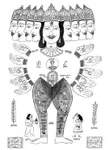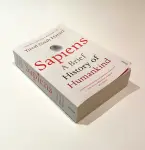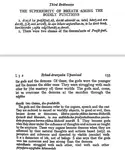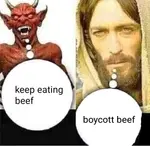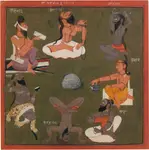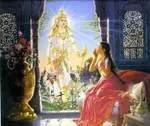Recent Posts
Who is your isht Devi/devta?
Caste is a Western Construct ....
i hate this madarchod ka pilla
Which sect are you most attracted to ?
Does God Exist?
Hindus are doomed
Is Indra considered the Supreme God In vedic hindu...
Why should Jats/Jatts/Zutts be Hindus ?
Varnashrama
What is that "One Book(s)" that everyone should re...
Post Indian normiecore
christianity
watch this jain baba bragging about jains exploiti...
Hinduism
Why do Chintus celebrate Brahmahatya ?
do you have faith in Bhagvad Gita ?
Some artwork I made using AI
To all my Musleem Bhachanners
As a Dalit I envy the feeling of religiosity among...
Ashwamedha Yagya
some betichods who sold the religion for cheap rew...
If a muslimahh ties you rakhi should one assume sh...
help with mujeet spreading propaganda
Discourse on the Upaniṣads
B-bros
Yaar Pajeet
coping seething dilating
was Vritra really a serpent ? In my opinion it was...
systematized Theology anyone ?
Kindness will save the world
somebody explain me this mental illness of worship...
lineage investigation
काकभुशुण्डि
Is Shiva an Indo-European deity?
Reason behind prohibition of Meat, onion and garlic in Navratri

H9CWOU
No.972
Any guesses or answers?

vz0sp4
No.973
>>972(OP)
> He dont know about bali pratha in East india

++TrrX
No.974
>>972(OP)
Religiously, onion and garlic are considered to be tamsik, this they are prohibited during navratri, sourced to padma purana, while meat is simply considered sin since it takes a life, abstaining from which is simply considered to comply to preference of a deity by Devi Bhagvata Purana.
Logically it would be to simply avoid killing as a sign of balance and reducing the burden on the nature even if by a fragment, but that's just a personal belief of mine.
It can be simplified to Navratri demanding Satvic food (broad category of diet) that simply asks one to not consume the kind of food that leads to impurity, aggression and lack of a spiritual clarity. I find it reasonable, since it only lasts a few days.

97GpHh
No.975
>>974
Honestly I don't think that any shastra has any mentions of Onion and garlic, as it was not present in India when shastras were being written or created.
But many people say that things that are root are not to eaten as it kills the plant, they say onion and garlic are roots, but potatoes are underground stem but this is false as onion, potato and garlic all are modified stems , whereas carrot, many people eat it even in vrat is absolutely a root.
Specially Jains who avoid potato, garlic , onion etc being root eat a root that is carrot.
So, I think either everyone's logic is half baked or the reason being onion garlic is taboo food is the smell it makes, which many people dislike and would have thought they should not sit infront of

XeVloN
No.976
>>973
Bali pratha and Navratri are complimentary though. People who practice bali pratha also abstain from meat untill astami, that is the first 8 days, while the sacrifice is traditionally done on 8th and 9th night according to Kali Purana. The law of not consuming Tamsic persists in the Baki pratha as well, abstaining garlic and onion by law of purana.
They exist simultaneously, but the priests tend to explain this by claiming difference is practices take place for sari under idea, that while rest of India is barren from the deity, she is returning to her mortal home.
It is kind of the same as why celebration of dushera and ayutha Puja will fall on different days when you consider a person would be experienced differently from location a where he left compared to location b where he ended up.

+0HdID
No.977
>>975
>Honestly I don't think that any shastra has any mentions of Onion and garlic, as it was not present in India when shastras were being written or created.
I partially agree with this, however I wonder if that was actually the case. I understand that lassana (not modern garlic) did exist and was mentioned as far back as attharva veda. I get if the modern iteration of highly selected variant may not have existed back then, but Iranian text and central asian ones which are non religious also mention them.
Purana were written much later compared to the Vedas, so it's not that surprising if they did exist but were not actively farmed by people.
>But many people say that things that are root are not to eaten as it kills the plant, they say onion and garlic are roots, but potatoes are underground stem but this is false as onion, potato and garlic all are modified stems , whereas carrot, many people eat it even in vrat is absolutely a root.
While I feel like the concept of root is true, the thing is that varies a lot by sect. Jainism doesn't avoid eating roots because they are roots but because they rate life by pain receptors and create a hierarchy of what will cause the being least harm of it was plucked, or consumed.
>Specially Jains who avoid potato, garlic , onion etc being root eat a root that is carrot.
>So, I think either everyone's logic is half baked or the reason being onion garlic is taboo food is the smell it makes, which many people dislike and would have thought they should not sit infront of
I don't doubt where that is coming from, but scriptures actually use them as medicinal properties too, so I simply feel like the process from a logical view was about moderation, while from a religious and theological view, was about purity.

97GpHh
No.978
>>977
The vedas are hymns they dont actually prescribe anything.
Dharmashastras and other grihastha shastras(griha sutras) prescribe things, but they are deeply contextual arent they? they are deeply contextual to place, time, and community if we interpret from the lens of our time. Every region, every different vedic school has had its own ritual manuals. So what’s “correct” in one might not even be recognized in another.
So yes my point being, most of these prescriptions are not really absolute for every place, every time, every society. They often evolve and have been set down by interpreters of Dharma for good of their society but arent actually prescribed in Vedas or Upanishads as those do not prescribe anything.

1EfMOY
No.983
Onion garlic gives bad breath and people back then didnt have advanced technology like toothpaste or toothbrush, so they just lumped onion garlic as rajasic or tamasic foods.
Then later on pandits cooked up stories about how rahu ketu were decapitated and where they fell onion garlic grew there.
Even red masoor daal is considered tamasic because they say it came from the blood of kaamdhenu cow, and eating it would be equal to eating beef.

QKbowE
No.984
>>972(OP)
Food affects you Mood


x47gOJ
No.995
>>972(OP)
cause heendu organizations have always been infiltrated by katbullas. They bladeee want you to follow
>nyo meat for 10th day of 11th new moon
sheiz and limit your meat intake. And heendus eat that sheiz up .
Instead of opening a meat farm they bladee send their kids to skewl to become unemployed. bladeee all you need to make cheap meat is bladee grass. If mutton is too labour intensive then all you need to do is kill all katmullas and then bladee do the cow thang cause naw you have nyo one trying to bully you. but nyoooo

qKBMi7
No.1003
Onion and garlic is disliked because of bad smell even in other cultures like Islam

wPrqJX
No.1004
>>975
it's mentioned in bhagwad geeta in an indirect way.

EFD2Gl
No.1155

EFD2Gl
No.1156
>>978
>most of these prescriptions are not really absolute for every place, every time, every society.
False argument with minor truth
>They often evolve and have been set down by interpreters of Dharma for good of their society but arent actually prescribed in Vedas or Upanishads as those do not prescribe anything.
False argument against backed up by another false argument as foundation, when their is no source to back up smriti are contextual and will vary by time and place.
Smriti have terms and conditions which is what makes them contextual, as it wouldn't make sense for a vaishnav heavy smriti or a Varna specific rite being applicable to everyone, but that doesn't mean with passage of time the entirety of it won't be applicable, which would be more prominent in general set of conduct that is provided, which doesn't have much to do with theology itself.
















